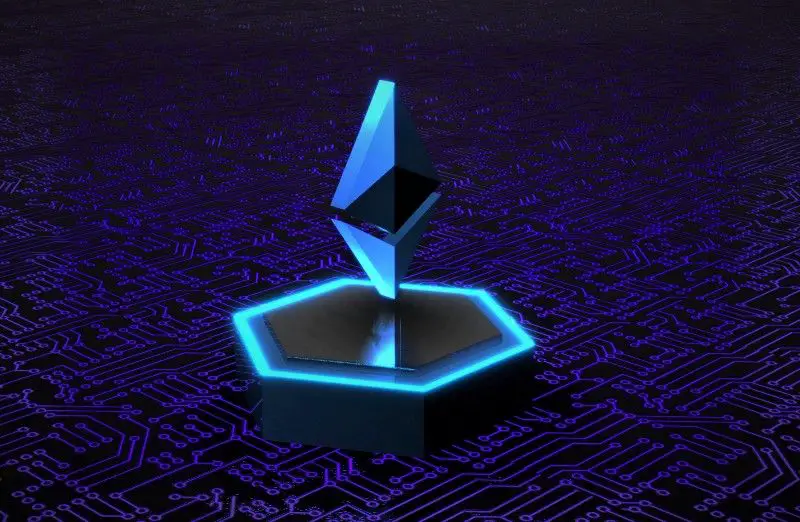What Is Solidity?
And why do Solidity programmers get paid so much (200k per year)?

And why do Solidity programmers get paid so much (200k per year)?
The other day while having coffee with a friend, I mentioned that smart contract developers can earn up to 200k a year working on Solidity. My friend's eyes almost popped out of his head when I said it and he immediately started typing notes into his phone while at the same time asking me ‘but, what is Solidity?’.
At the time this came up, we were actually discussing his 11-year-old son’s side-hustle of mowing lawns. Like most kids these days, his son is usually playing video games when he's not mowing lawns and so my buddy explained that this would be something he’d try to nudge his son into.
Here is my short explanation of what Solidity is.
Solidity is a programming language used to create a special kind of contract called a smart contract on the Ethereum blockchain.
Good explanation?
My friend didn’t really get it to be honest, but he sells advertising for a living.
Let's hope he was able to convince his son that becoming a Solidity programmer is more profitable than mowing lawns…
If you want more information on smart contracts or blockchains, by the way, you can take a look at What are smart contracts? By IBM and What is blockchain? By Lucas Mostazo. Both are pretty good resources in my opinion.
But let's continue talking about Solidity and how you can get involved if you want some of that delicious cash money.
Solidity is also described as:
- High-level
- Object-oriented
- Curly-bracket
What do these things mean?
High-level just means it is supposedly closer to human languages as compared with machine languages.
Object-oriented which is short for object-oriented program (OOP) refers to the paradigm or style of the program. In programming a paradigm is the method to the madness, it's how you do what you do, or how you solve the problem.
Curly-bracket is simply just describing the fact that Solidity uses these things {}. Curly-bracket is a type of programming language.
What is the purpose of Solidity?
The main reason Solidity exists is to be able to write smart contracts for specific use-cases on the Ethereum blockchain.
I won't go deep into smart contracts here, besides, you can explain a smart contract in various ways. Currently, the main use for smart contracts is to launch Ethereum-based tokens and NFTS, conduct crowdsales, and fair launches, manage marketplaces, and build financial protocols in the DeFi space.
If you have ever used MetaMask, PancakeSwap, Uniswap, or Coinbase Wallet there’s a good chance you have interacted with a smart contract.
How to get started with Solidity?
Familiarise yourself first.
This is a great free video from freecodecamp.org that you can watch which will give you a great head start. It goes for an hour and a half because it is a full tutorial, so be sure to set some time aside.
Next, you want to head over to soliditylang which is the home base for all things Solidity, and begin reading the documentation. The documentation is also available in French, Indonesian, Persian, Japanese, Korean, and Chinese.
Finally, when you are ready to go, you’ll need a compiler. The most popular compiler is Remix which you can access here.
I found this great video tutorial on how to use Remix here.
Are there any Solidity courses?
Universities and colleges are beginning to offer Solidity courses as part of boot camps, but in all honesty, you probably don’t need to go to University to study Solidity, even if they do start to offer advanced qualifications.
There are heaps of free or cheap online courses you can take, like the one I linked above from freecodecamp.org or you can check out this one by Udemy which only costs $34.99 ($AUD). It’s been taken by over 16 thousand students and has a 4.5-star rating.
Why do Solidity programmers get paid so much?
I can explain this in a thousand different ways but the easiest is to just say ‘supply and demand’.
Blockchain and smart contracts are still a new and emerging technology and anything that is new and still being learned by the vast majority of people is going to have a level of demand and that demand at the moment is worth a lot.
I asked Neil Dundon, Founder of Crypto Recruit the same questions and he had this to say:
It’s like everything else, it’s supply and demand. There is currently a lack of Solidity developers and so that is why the salaries are so high, everybody is playing catch-up in a sense…there’s also a heavy focus from our clients for developers with proven experience and credentials, they ideally want developers with proven track records of code that has been deployed on the mainnet of large projects, deployed and audited.
If you are aiming for that sweet 200k package, listen to Neils’s last bit of advice, specifically the part where he says deployed and audited.
With the nature of crypto, anyone can get started and get involved. Does it mean you are any good though? No, it doesn’t. And recruiters know this, they are trained to weed out time-wasters, and the way they do this is by asking to see code that has been utilized, deployed, and audited.
So remember, jump in, and learn but before you start submitting resumes think about what kind of work you have to show. Just because there is a high demand at the moment, it does not mean you will get your foot in the door because you watched some YouTube videos and clicked around Remix!
Want to know how you can support Crypto Fireside?
Sign up below. It's free and easy 🔥.

